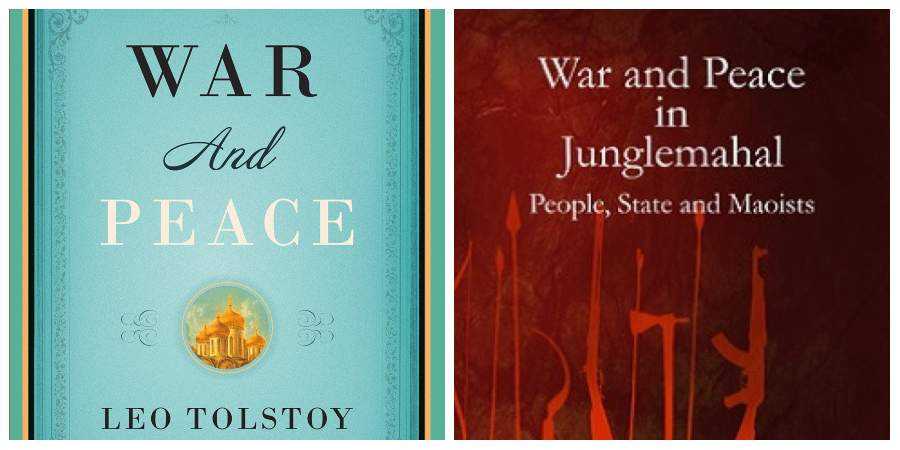“What is freedom of expression? Without the freedom to offend, it ceases to exist.” – Salman Rushdie
Controversy has erupted after Justice Kotwal of Bombay High Court, asked Vernon Gonsalves, accused in the Elgar Parishad-Koregaon Bhima case, to explain copy of “War and Peace” found at his home and called it “objectionable material” and “highly incriminating evidence”. He was apparently asked to explain why he had a book “about war in another country”.
War and Peace, a classic by Tolstoy on Napoleonic era and the Tsars in Russia is regarded as seminal works in world literature. War and Peace trended on social media all day. It was later revealed that the book in question was actually “War and Peace in Junglemahal: People, State and Maoists” a collection of essays.
While this generated an interesting debate on Twitter, it makes one realize the subversive potential of books in general. Time and again, books have been banned for various reasons by states. Mainly the reasons for ban vary from critique of state or figureheads, critique of religions or sexually explicit content. Such bans not only reflect of the subversive power of literature but also the fragility of state and societal laws in general. In fact novel Fahrenheit 451 by Ray Bradbury imagines a dystopia in which books are outlawed and burned. The Handmaid’s Tale, by Margaret Atwood, another dystopian novel about an authoritarian regime shows a society where books are banned.
Bhima Koregoan violence: Culprits walk free while government hounds activists
Book bans have been frequent throughout history. Some examples are well known. George Orwell’s 1984 is a dystopian novel on totalitarian state obsessed with surveillance and propaganda. It was banned by the Soviet Union till 1990s. His other novel Animal Farm was also banned in Soviet Union, and till date it remains banned in North Korea and censored in Vietnam. The Satanic Verses by Salman Rushdie remains one of the most widely banned books for alleged blasphemy against Islam. It remains banned in Bangladesh, Egypt, India, Iran, Kenya, Kuwait, Liberia, Malaysia, Papua New Guinea, Pakistan, Senegal, Singapore, Sri Lanka, Tanzania and Thailand. Burger’s Daughter by Nadine Gordimer was banned in South Africa for critique of government’s racial policies (ban was reversed same year though). Joseph Heller’s Catch-22 set during Second World War was banned in several US states in the 70s.
India has a long history of banning books. Recently injunction was issued against book on Baba Ramdev – Godman to Tycoon: The Untold Story of Baba Ramdev. Wendy Doniger’s book The Hindus: An Alternative History was also banned for its controversial content. Other books that have been banned in India at various times (nationwide or in some states) include An Area of Darkness by Naipaul, Jinnah: India-Partition-Independence Jaswant Singh, Nine Hours to Rama by Stanley Wolpert, Unarmed Victory by Bertrand Russell, Great Soul: Mahatma Gandhi and His Struggle with India by Joseph Lelyveld among others.
Other books that have been challenged include: Arundhati Roy’s The God of Small Things, The Polyester Prince: The Rise of Dhirubhai Ambani by Hamish McDonald (the book never went to print), Five Past Midnight in Bhopal by Dominique Lapierre and Javier Moro (on Bhopal Gas Tragedy), The Descent of Air India by Jitendra Bhargava (withdrawn after defamation suit by former Aviation Minister), Towards Freedom (10 volume history project) by Sumit Sarkar and K.N Panikkar etc.
Censorship of books is an attack on fundamental freedom of expression and is untenable in a democracy. Fear of books depicts a society that has become narrow minded and ignorant. Henry Steele Commager, writer and historian, points out, “The fact is that censorship always defeats its own purpose, for it creates, in the end, the kind of society that is incapable of exercising real discretion. In the long run it will create a generation incapable of appreciating the difference between independence of thought and subservience.”
(The views expressed above are the author’s own. Newsd neither endorses nor is responsible for the same.)


















